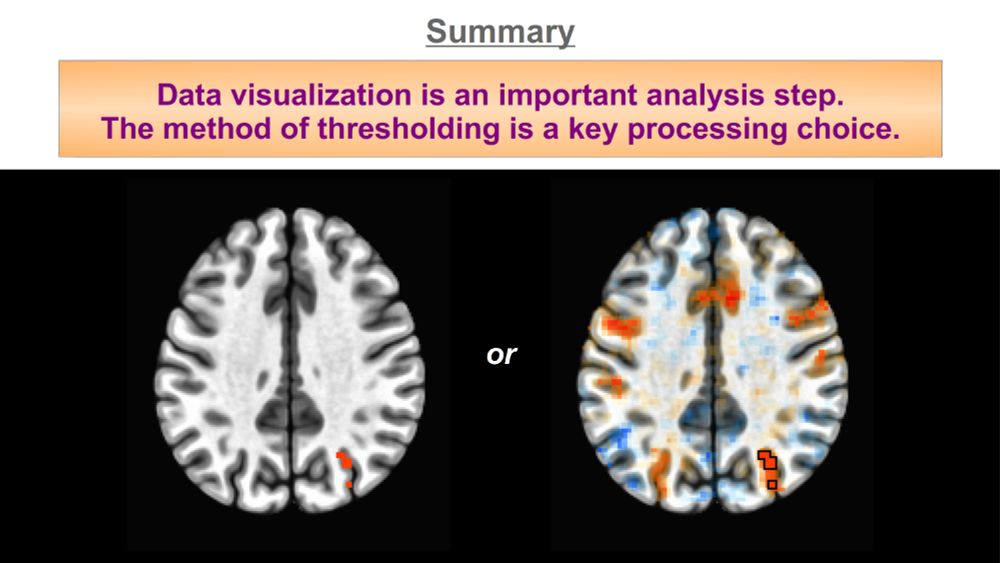
Quick reminder @ the next AFNI Bootcamp: May 28-30, 2025. Learn through interactive data analysis!
Day 1-2: data viz, single subject analysis and QC.
Day 3: statistics, results reporting and group analysis.
Details, registration and schedule:
afni.nimh.nih.gov/bootcamp

Quick reminder @ the next AFNI Bootcamp: May 28-30, 2025. Learn through interactive data analysis!
Day 1-2: data viz, single subject analysis and QC.
Day 3: statistics, results reporting and group analysis.
Details, registration and schedule:
afni.nimh.nih.gov/bootcamp
First 2 days: data visualization, single subject analysis and QC. 3rd day: statistics, results reporting and group analysis.
Please see here for details, registration link and preliminary schedule:
afni.nimh.nih.gov/bootcamp
First 2 days: data visualization, single subject analysis and QC. 3rd day: statistics, results reporting and group analysis.
Please see here for details, registration link and preliminary schedule:
afni.nimh.nih.gov/bootcamp
www.sciencedirect.com/science/arti...
www.sciencedirect.com/science/arti...
"Go Figure: Transparency in neuroscience images preserves context and clarifies interpretation"
arxiv.org/abs/2504.07824
TL;DR: The FMRI world can (and should) improve results interpretation and reproducibility *today*, via transparent thresholding.

Conventional estimation methods ignore measurement error, leading to a bias. Don't worry: hierarchical modeling to the rescue!
www.frontiersin.org/journals/gen...

Conventional estimation methods ignore measurement error, leading to a bias. Don't worry: hierarchical modeling to the rescue!
www.frontiersin.org/journals/gen...
A new AFNI Bootcamp for FMRI/MRI, Jan 29-31, 2025. This part will focus on group analysis, statistics, surface analyses, results reporting and more.
This event will be virtual. Please see here:
discuss.afni.nimh.nih.gov/t/afni-bootc...

A new AFNI Bootcamp for FMRI/MRI, Jan 29-31, 2025. This part will focus on group analysis, statistics, surface analyses, results reporting and more.
This event will be virtual. Please see here:
discuss.afni.nimh.nih.gov/t/afni-bootc...
1) Does calling a correlation a correlation hurt its feelings or make it less accurate?
2) Does calling a correlation a correlation mislead the public or cause mass confusion?
Using the word connectivity is misleading, since it relates to structure and no way this is correct w/o a robust assessment. You can observe this just by changing params in dynamics.
1) Does calling a correlation a correlation hurt its feelings or make it less accurate?
2) Does calling a correlation a correlation mislead the public or cause mass confusion?
@gangchen6.bsky.social @afni-pt.bsky.social @fmri-today.bsky.social


